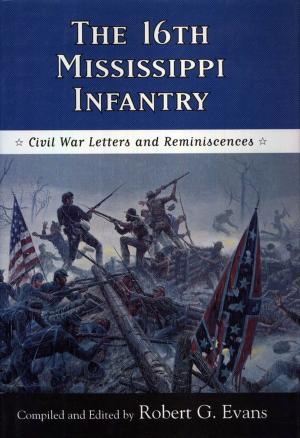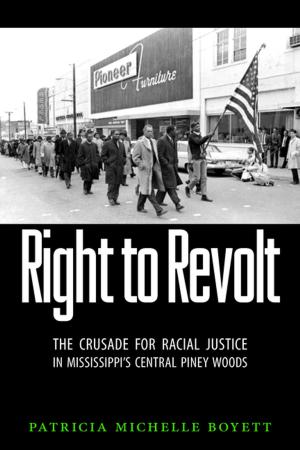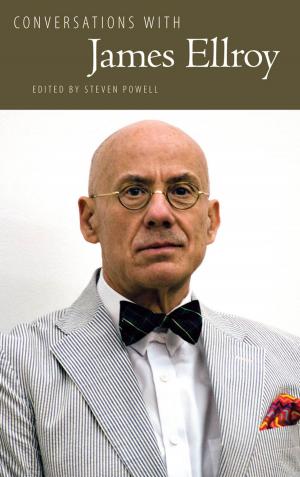The Jim Dilemma
Reading Race in Huckleberry Finn
Fiction & Literature, Literary Theory & Criticism, American| Author: | Jocelyn Chadwick-Joshua | ISBN: | 9781604738117 |
| Publisher: | University Press of Mississippi | Publication: | July 1, 1998 |
| Imprint: | University Press of Mississippi | Language: | English |
| Author: | Jocelyn Chadwick-Joshua |
| ISBN: | 9781604738117 |
| Publisher: | University Press of Mississippi |
| Publication: | July 1, 1998 |
| Imprint: | University Press of Mississippi |
| Language: | English |
Especially in academia, controversy rages over the merits or evils of Mark Twain's Adventures of Huckleberry Finn, in particular its portrayal of Jim, the runaway slave. Opponents disrupt classes and carry picket signs, objecting with strong emotion that Jim is no fit model for African-American youth of today. In continuing outcries they claim that he and the dark period of American history he portrays are best forgotten. That time has gone, Jim's opponents charge. This is a new day.
But is it? Dare we forget? The author of The Jim Dilemma argues that Twain's novel, in the tradition of all great literature, is invaluable for transporting readers to a time, place, and conflict essential to understanding who we are today. Without this work, she argues, there would be a hole in American history and a blank page in the history of African-Americans. To avoid this work in the classroom is to miss the opportunity to remember.
Few other popular books have been so much attacked, vilified, or censored. Yet Ernest Hemingway proclaimed Twain's classic to be the beginning of American literature, and Langston Hughes judged it as the only nineteenth-century work by a white author who fully and realistically depicts an unlettered slave clinging to the hope of freedom.
A teacher herself, the author challenges opponents to read the novel closely. She shows how Twain has not created another Uncle Tom but rather a worthy man of integrity and self-reliance. Jim, along with other black characters in the book, demands a rethinking and a re-envisioning of the southern slave, for Huckleberry Finn, she contends, ultimately questions readers' notions of what freedom means and what it costs. As she shows that Twain portrayed Jim as nobody's fool, she focuses her discussion on both sides of the Jim dilemma and unflinchingly defends the importance of keeping the book in the classroom.
Jocelyn Chadwick-Joshua is director of the American studies program at Dallas Institute for the Humanities.
Especially in academia, controversy rages over the merits or evils of Mark Twain's Adventures of Huckleberry Finn, in particular its portrayal of Jim, the runaway slave. Opponents disrupt classes and carry picket signs, objecting with strong emotion that Jim is no fit model for African-American youth of today. In continuing outcries they claim that he and the dark period of American history he portrays are best forgotten. That time has gone, Jim's opponents charge. This is a new day.
But is it? Dare we forget? The author of The Jim Dilemma argues that Twain's novel, in the tradition of all great literature, is invaluable for transporting readers to a time, place, and conflict essential to understanding who we are today. Without this work, she argues, there would be a hole in American history and a blank page in the history of African-Americans. To avoid this work in the classroom is to miss the opportunity to remember.
Few other popular books have been so much attacked, vilified, or censored. Yet Ernest Hemingway proclaimed Twain's classic to be the beginning of American literature, and Langston Hughes judged it as the only nineteenth-century work by a white author who fully and realistically depicts an unlettered slave clinging to the hope of freedom.
A teacher herself, the author challenges opponents to read the novel closely. She shows how Twain has not created another Uncle Tom but rather a worthy man of integrity and self-reliance. Jim, along with other black characters in the book, demands a rethinking and a re-envisioning of the southern slave, for Huckleberry Finn, she contends, ultimately questions readers' notions of what freedom means and what it costs. As she shows that Twain portrayed Jim as nobody's fool, she focuses her discussion on both sides of the Jim dilemma and unflinchingly defends the importance of keeping the book in the classroom.
Jocelyn Chadwick-Joshua is director of the American studies program at Dallas Institute for the Humanities.















